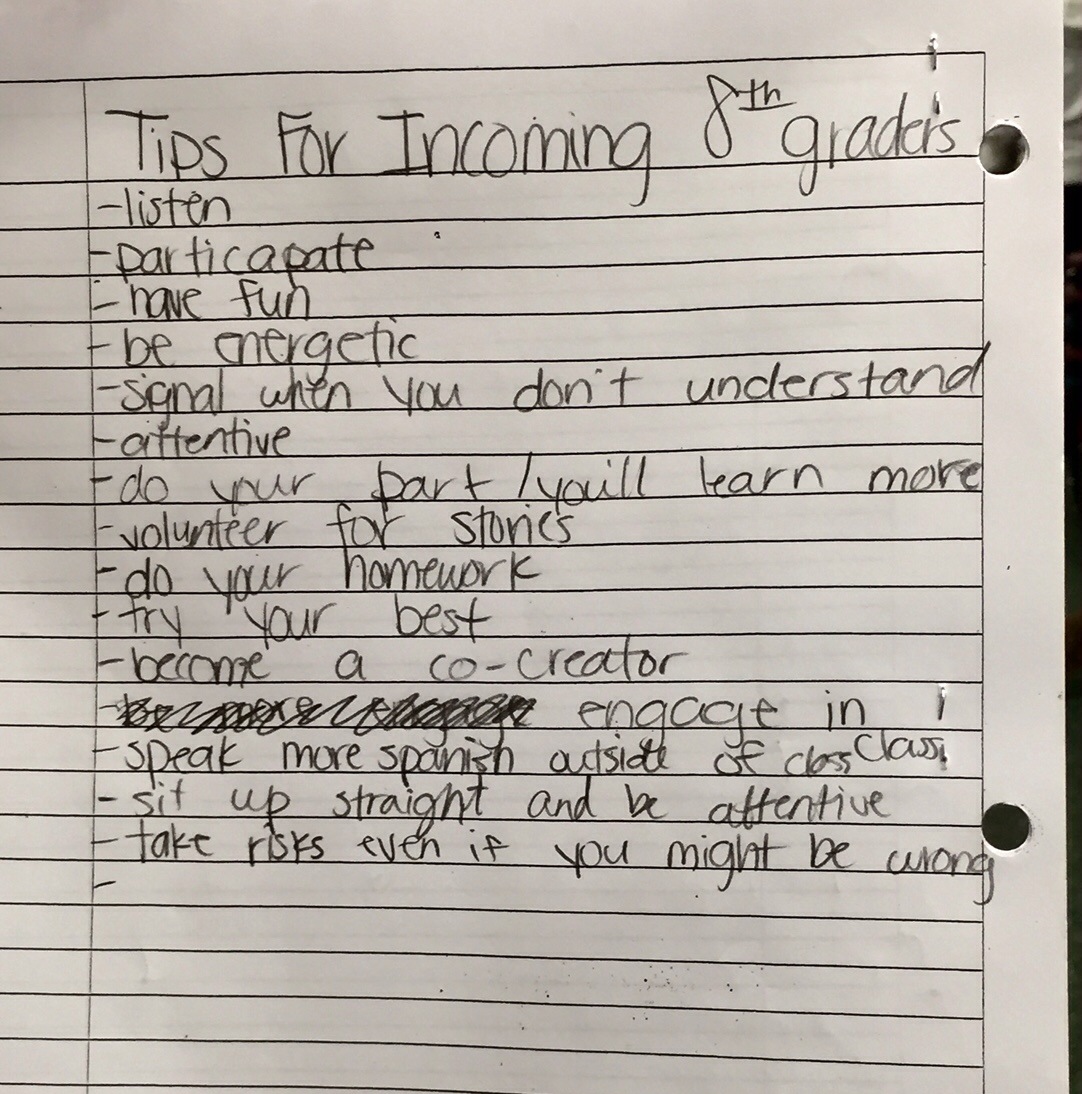
I usually reserve a few days each school year for some kind of large group reflection period. I don’t schedule it, but mentally I anticipate it and when the energy is right, I take the time. At the end of the first trimester, I like to ask a few reflection questions that help kids realize how much we really are learning. One of the tenets of TCI is the belief that language acquisition is a subconscious process. Most of the kids understand that in a real visceral way. They just feel like they’ve already accomplished a ton. And they have.
But sometimes a student will make a comment that they “haven’t learned” or “don’t remember” something. When I speak to them, they understand and respond appropriately without hesitation. It’s good to be able to point out, at moments like these, the differences in what “learning” in a TCI class looks and feels like. It’s different.
Memorizing, plugging variables into formulas, identifying subjects and conjugating verbs, turning in packets or receiving 98.3% on big tests are all sensations that feel like work and require intentional attention from the conscious brain. These are examples of language “learning” that yield little proficiency and receive little to no attention in my classes. On the other hand, some indicators of “knowing” in my classes are more aptly called sensations of acquisition.
- Following conversations with ease
- Responding to questions with a single word or short phrase
- Retelling what you’ve heard or read with ease
- Saying more today than you could a few weeks ago
- Writing longer, more detailed sentences than you did last week
These are all sensations of successful acquisition having taken place and it’s what I strive for and how I define “learning” in my class.
I tell students from the beginning that the students who are actively engaged, who answer my questions, who ensure that they’re understanding the messages I send them and who spend time reading and re-reading our co-created stories from class will acquire. Those who are less actively engaged will still acquire, but usually not as quickly. So, when I asked kids last week “Knowing what you know about how this class works, what advice for guaranteed success would you give incoming 8th graders?” I wasn’t surprised at all to hear the tips they came up with.
Some of my favorites were:
Dude, just relax and let yourself have fun!
Realize that you can steer the direction of class if you become a co-creator.
Find ways to speak more Spanish outside of class.
I waited until their energy sputtered. I congratulated them on a great list. They clearly know what it takes to be successful language learners in a comprehension-based class.
Then, I sprang the trap. There are 11 weeks left and I’d noticed kids getting a little lax. I told them that all these great ideas are actually tips for them as we close out the year!
Yes, we’ve learned a ton. Yes, we’ve become somewhat accustomed to our routines and rituals. Yes, our teacher constantly tries to find ways to introduce novelty to keep interest up. But Spring has sprung and some fires need to be lit under some 8th grade bums.
Here we are a week later and I’ve seen a positive bump in engagement and participation. I’m happy I chose to use the 20 minutes I did for that reflection period. I’ll pencil it into next year’s at-a-glance calendar and when the time is right, I’ll put my agenda on the shelf for 20 minutes, have a sincere discussion with them and hope it helps us finish out the year strong.